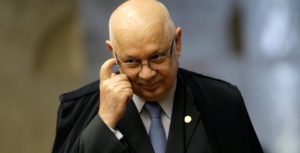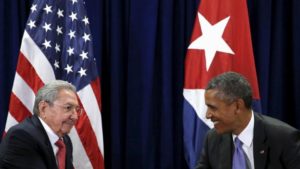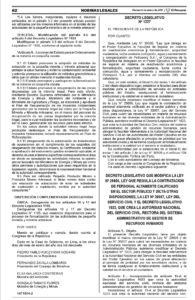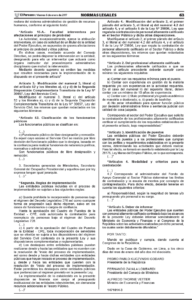Supreme Court To Decide If Mexican Nationals May Sue For Border Shooting
The cellphone video is vivid. A border patrol agent aims his gun at an unarmed 15-year-old some 60 feet away, across the border with Mexico, and shoots him dead.
On Tuesday, the U.S. Supreme Court hears arguments in a case testing whether the family of the dead boy can sue the agent for damages in the U.S.
Between 2005 and 2013, there were 42 such cross-border shootings, a dramatic increase over earlier times.
The shooting took place on the border between El Paso, Texas, and Juárez, Mexico.
The area is about 180 feet across. Eighty feet one way leads to a steep incline and an 18-foot fence on the U.S. side — part of the so-called border wall that has already been built. An almost equal distance the other way is another steep incline leading to a wall topped by a guardrail on the Mexican side.
In between is a the dry bed of the Rio Grande with an invisible line in the middle that separates the U.S. and Mexico. Overhead is a railroad bridge with huge columns supporting it, connecting the two countries.
In June 2010, Sergio Hernández and his friends were playing chicken, daring each other to run up the incline on the U.S. side and touch the fence, according briefs filed by lawyers for the Hernández family.
At some point U.S. border agent Jesus Mesa, patrolling the culvert, arrived on a bicycle, grabbed one of the kids at the fence on the U.S. side, and the others scampered away. Fifteen-year-old Sergio ran past Mesa and hid behind a pillar beneath the bridge on the Mexican side.
As the boy peeked out, Agent Mesa, 60 feet or so away on the U.S. side, drew his gun, aimed it at the boy, and fired three times, the last shot hitting the boy in the head.
Although agents quickly swarmed the scene, they are forbidden to cross the border. They did not offer medical aid, and soon left on their bikes, according to lawyers for the family.
A day after the shooting, the FBI’s El Paso office issued a press release asserting that agent Mesa fired his gun after being “surrounded” by suspected illegal aliens who “continued to throw rocks at him.”
Two days later, cell phone videos surfaced contradicting that account. In one video the boy’s small figure can be seen edging out from behind the column; Mesa fires, and the boy falls to the ground.
“The statement literally says he was surrounded by these boys, which is just objectively false,” says Bob Hilliard, who represents the family. Pointing to the cell phone video, he says it is “clear that nobody was near ” agent Mesa.
In one video, a woman’s voice is heard saying that some of the boys had been throwing rocks, but the video does not show that, and by the time the shooting takes place, nobody is surrounding agent Mesa.
The U.S. Department of Justice decided not to prosecute Mesa. Among other things, the department concluded that it did not have jurisdiction because the boy was not on U.S. soil when he was killed.
Mexico charged the agent with murder, but when the U.S. refused to extradite him, no prosecution could go forward.
U.S. Customs and Border Patrol did not discipline agent Mesa—a fact that critics, including high-ranking former agency officials, say reflects a pattern inside the agency.
The parents of the slain boy, however, have sued Mesa for damages, contending that the killing violated the U.S. Constitution by depriving Sergio Hernández of his life.
“I can’t believe that this is allowed to happen – that a border patrol agent is allowed to kill someone on the Mexican side, and nothing happens,” Sergio’s mother, Maria Guadalupe Güereca Betancour, says through an interpreter.
As the case comes to the Supreme Court, there has been no trial yet and no court finding of facts. Mesa continues to maintain that he shot the boy in self-defense after being surrounded by rock-throwing kids.
That’s a scenario that Mesa’s lawyers say is borne out by other videos from stationary cameras that have not been released to the public.
“It was clear that Agent Mesa was in an area that is wrought with narcotics trafficking and human trafficking,” asserts Randolph Ortega, who represents Mesa on behalf of the border patrol agents union. “And it’s clear that, in my opinion, he was defending himself.”
The only question before the Supreme Court centers on whether the Hernández family has the right to sue. A divided panel of the Fifth Circuit Court of Appeals concluded that no reasonable officer would have done what Agent Mesa did, and that therefore the family could sue.
However, the full court of appeals reversed that judgment, ruling that because the Hernández boy was standing on the Mexico side of the border and was a Mexican citizen with no ties to the United States, his family could not sue for a violation of the U.S. Constitution. Moreover, the appeals court said that even if the facts as alleged by the Hernández family are true, Mesa is entitled to qualified immunity, meaning he cannot be sued because there is no clearly established body of law barring his conduct.
Lawyers for the Hernández family counter that Supreme Court precedents establish a practical approach in determining whether there is a right to sue for the use of excessive force in circumstances like these. Lawyer Hilliard says yes, the boy was across the border when the shots were fired, but by just 60 feet.
“This is a domestic action by a domestic police officer standing in El Paso, Texas, who is to be constrained by this country’s constitution,” Hilliard contends. “There’s a U.S. Supreme Court case that says a law enforcement officer cannot seize an individual by shooting him dead, which is what happened in this case.”
Hilliard argues that if you follow the border patrol’s argument to its necessary conclusion, “it means that a law enforcement officer is immune to the Constitution when exercising deadly force across the border.
“He could stand on the border and target practice with the kids inside the culvert,” Hilliard warns.
But lawyer Ortega replies that’s not true, and asks how the court should draw the line.
“How far does it extend? Does it extend 40 feet? As far as the bullet can travel? All of Juárez, Mexico? All of (the state of) Chihuahua, Mexico? Where does the line end?”
Backed by the federal government, he suggests that a ruling in favor of the Hernández family would mean foreigners could sue over a drone attack.
Now it’s up to the Supreme Court to decide where to draw the line.
In: npr










